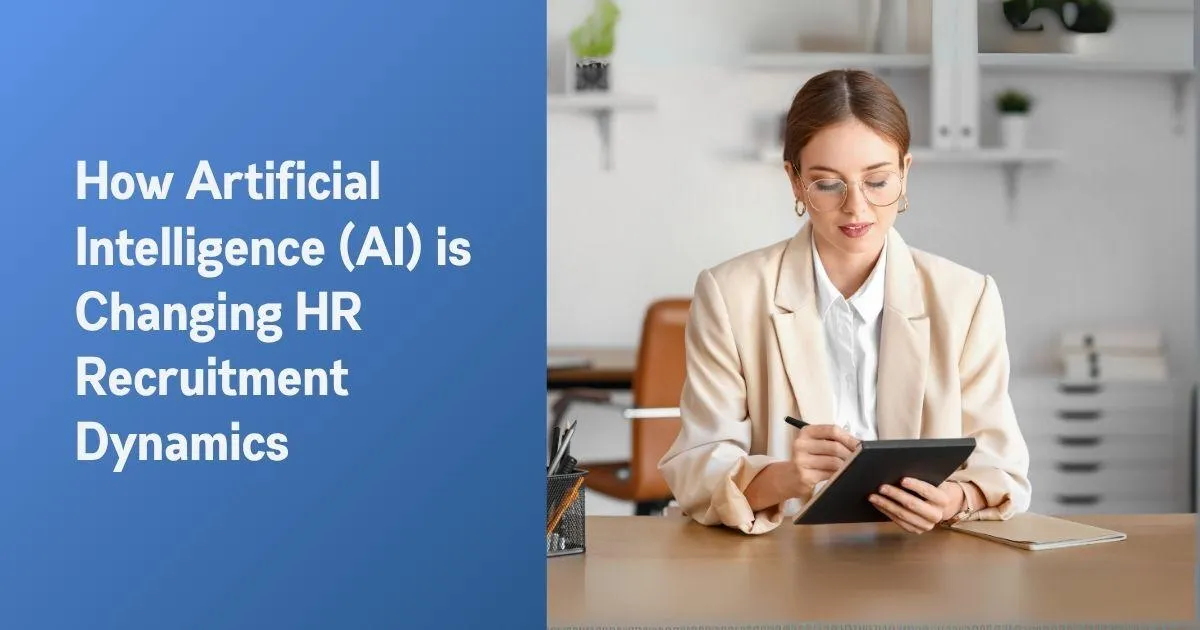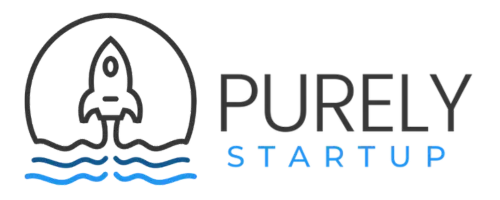
How Artificial Intelligence (AI) is Changing HR Recruitment Dynamics
Some HR people say hiring has never been harder. Others say it’s never been smarter. Either way, things aren’t how they used to be. Screening resumes, managing interviews, sorting applicants; AI is showing up everywhere, doing tasks we thought only people could do.
Now, Artificial Intelligence is changing HR dynamics in recruitment processes, and it’s happening fast, whether we’re fully ready for it or not.
But is it really helping? Or only adding more noise?
In this post, we’ll break it down: how artificial intelligence is changing HR recruitment dynamics, how it’s being used, the perks, the challenges along the way, and where it might be headed next. So, let's get started without any further delay.
How Artificial Intelligence (AI) is Changing HR Recruitment Dynamics
How is AI being used in HR and recruitment?
1. Resume Screening and Candidate Shortlisting
3. Automated Candidate Engagement
4. Interview Analysis and Evaluation
Key Advantages of AI in the Recruitment Process
3. Improved Candidate Experience
4. Consistent and Objective Assessments
Challenges to Consider as Artificial Intelligence Shifts HR Dynamics In Recruitment
Challenge 1. Ethical Concerns and Bias
Challenge 2. Privacy and Data Security
Challenge 3. Over-Reliance on Technology
Challenge 4. Technical Limitations and Accuracy
How is AI being used in HR and recruitment?
Let's look at the key ways artificial intelligence (AI) is reshaping HR and recruitment.

1. Resume Screening and Candidate Shortlisting
According to research by Jobscan, over 98% of Fortune 500 companies now use Applicant Tracking Systems (ATS) to streamline hiring. These AI-powered tools have changed resume screening from tedious, time-consuming tasks into a prompt, data-driven process.
They quickly scan thousands of resumes for key skills, relevant experience, and qualifications. This automation frees HR teams from the manual slog of sorting through endless applications. More importantly, these systems continuously learn from hiring decisions and refine their algorithms to better identify top talent over time.
This lowers the risk of overlooking qualified candidates just because a recruiter is tired or stressed. As a result, recruiters can dedicate more time to meaningful candidate engagement rather than getting bogged down in administrative tasks.
2. Smart Job Matching
AI doesn’t stop at looking for keywords; it understands the bigger picture. By analyzing a candidate’s entire profile, AI evaluates career paths and potential industry shifts.
Also, it analyzes soft skills gathered from cover letters. This means it goes beyond rigid filters to spot transferable talents that traditional methods often miss. Think about an assistant who reviews hundreds of job openings and pinpoints the best matches instantly.
That’s what AI brings to recruitment. This leads to more relevant applications, less wasted time, and smoother communication between HR and hiring managers. Such nuanced matching makes the hiring process smarter and far more efficient.
3. Automated Candidate Engagement
AI-powered chatbots have redefined candidate engagement by offering immediate, personalized interactions throughout the hiring journey. These virtual assistants work around the clock, addressing candidate inquiries, scheduling interviews, and providing timely updates.
For instance, Chipotle's AI assistant, Ava Cado, has increased application completion rates from 50% to 85% and reduced processing time from 12 days to only four days.
👉 Always wanted your own AI assistant? This simple guide walks you through building one—even if you're brand new to it.
By automating routine tasks, chatbots give HR professionals more time to concentrate on strategic decision-making. However, it's crucial to make sure these systems are designed to be inclusive and free from biases to encourage a fair and equitable recruitment process.
4. Interview Analysis and Evaluation
AI-powered tools are increasingly being used to evaluate candidate interviews, not simply for what’s being said, but how it’s being said. These systems analyze tone of voice, facial cues, and speech patterns. Plus, they also assess micro-expressions to gauge qualities like confidence, clarity, and emotional intelligence.
This adds another layer of insight for recruiters and helps them make more informed decisions. However, these tools aren’t meant to replace human instincts.
They work best when paired with a recruiter’s judgment, offering objective observations that can confirm or question gut feelings. Still, ethical use is key. Recruiters must ensure that candidates are aware of such analysis and that no decision relies solely on algorithms.
Key Advantages of AI in the Recruitment Process
Here are some standout benefits of using artificial intelligence in the hiring process that companies and candidates are already experiencing.

1. Faster Hiring Decisions
AI speeds up hiring by handling routine work such as screening resumes and scheduling interviews. For example, AI chatbots can quickly answer candidates’ questions, and ATS systems sort through a pile of resumes in no time.
This means companies can fill jobs faster, cutting down downtime. Instead of taking weeks or months, hiring can happen in only days. On top of that, HR teams get to spend more time connecting with the best candidates rather than drowning in paperwork.
👉 Want to hire faster and smarter? Here’s how AI is reshaping HR and how to use it to your advantage.
2. Cost Efficiency
A recruiter told SHRM that using AI helped cut their costs per hire by nearly 30%. That’s a big deal, particularly when budgets are tight. By handling repetitive tasks like resume filtering and interview scheduling, AI saves lots of manual hours.
Also, it reduces the number of unqualified applicants who make it to the interview stage. This means you spend less time interviewing the wrong people. Faster and smarter hiring helps avoid bad hires, which can be super costly when you think about rehiring and training all over again.
3. Improved Candidate Experience
No one likes waiting around in silence after applying. That’s where AI really helps. With smart chatbots and quick updates, candidates aren’t left wondering what’s going on.
They feel informed, heard, and respected. It makes the whole process smoother and less frustrating. Also, when people have a good experience, even if they don’t get the job, they’re more likely to speak positively about your company.
4. Consistent and Objective Assessments
AI uses the same standards for every application, which helps reduce unconscious biases that can happen in hiring. Additionally, when these tools are set up right and watched closely, they focus more on real skills and qualifications instead of instincts or first impressions.
This kind of fairness helps create a more diverse and welcoming workplace. Of course, AI isn’t perfect, but it’s a solid helper to keep things balanced and more transparent.
5. Better Workforce Planning
Besides helping with day-to-day hiring, AI also gives HR teams a clearer picture of what’s coming next. It looks at hiring patterns, skills gaps, and turnover risks over time. So, instead of reacting last minute, recruiters can plan ahead with more confidence.
Moreover, by using this data, organizations can better align recruitment with future business needs. At times, this foresight makes all the difference in finding the right talent before the demand hits.
👉 AI in HR sounds great but is it all upside? Here are 8 pros and cons you need to know first.
Challenges to Consider as Artificial Intelligence Shifts HR Dynamics In Recruitment
As powerful as AI is in reshaping recruitment, it’s not a flawless solution. To make the most of these technologies, HR teams must be aware of the challenges that come with them.

Challenge 1. Ethical Concerns and Bias
AI tools learn from the data they’re fed, and sometimes that data carries hidden biases. If you don’t keep an eye on it, those biases can slip into hiring decisions and unintentionally hurt certain groups. That's why it's important for companies to regularly check their AI systems and be open about how these tools work to promote fairness.
Challenge 2. Privacy and Data Security
AI relies on collecting large amounts of candidate information, which naturally raises concerns about privacy. Organizations need to be careful with how they store and use this data and follow all the rules. Additionally, they should clearly communicate how candidate data is used. This transparency builds trust and keeps the process smooth for everyone involved.
Challenge 3. Over-Reliance on Technology
“Automation is good, so long as you know exactly where to put the machine."
Eliyahu Goldratt.
AI can offer great insights, but leaning on it too much might cause HR teams to miss out on their own judgment and instinct. Often, it’s human intuition that picks up on cultural fit or subtle qualities no machine can detect. So, it’s important to keep a balance, using AI as a helpful tool but not as the only guide in making hiring decisions.
Challenge 4. Technical Limitations and Accuracy
AI tools are smart, but not all are perfect. Sometimes they might miss subtle details in resumes or interviews that reveal a candidate’s true potential. Moreover, unique qualities or experiences can be overlooked if you rely solely on automation. That’s why ongoing updates and a good dose of human oversight are key to making sure no talent ever goes unnoticed.
Best Practices for Implementing AI in Recruitment
AI can no doubt make hiring faster, fairer, and more data-driven, but only when used thoughtfully. Here's how to implement it without losing the human touch or risking reputational damage.

1. Audit AI Tools Regularly
Most companies stop at a one-time bias check. That’s not enough. Your AI is only as fair as the data it learns from. If your hiring patterns evolve or need to, so should your algorithms.
What to do?
Feed the system with diverse and regularly updated candidate profiles.
Routinely assess outcomes for hidden patterns like AI preferring candidates from certain universities or zip codes.
Bring in third-party audits to assure objectivity.
👉 Want to upgrade your HR game for $0? Check out these 9 free AI tools that are total game-changers.
2. Maintain Human Oversight
AI should be the scout, not the coach. Read that again. Let it handle volume such as ranking candidates, scheduling, and identifying skills gaps. However, final decisions should always involve real humans who understand team dynamics and emotional intelligence.
What to do?
Use AI for resume screening and initial skill-based assessments only.
Make sure every shortlisted candidate is reviewed by a human before final selection.
Create a checklist for hiring managers to evaluate human-only qualities, such as adaptability and communication style, after AI filters the resumes.
3. Upskill Your Team
It’s not enough for HR to use AI; they need to understand it too. That means knowing how algorithmic decisions are made, where data comes from, as well as what the limitations are.
What to do?
Offer training sessions on analyzing AI-driven shortlists.
Teach recruiters how to spot red flags in automated recommendations.
Help hiring managers question the ‘why’ behind a candidate’s AI score.
4. Ensure Transparency
You should communicate with candidates about how AI is used in the recruitment process. Instead of simply saying, ‘We use AI,’ explain ‘how.’ Candidates have the right to know if a bot is screening their resume, ranking their answers, or flagging their social media.
What to do?
Add a one-liner in the job ad: ‘We use AI to shortlist resumes for skills and experience, humans make all hiring decisions.’
Offer feedback when candidates are rejected by AI.
Include an opt-out option for AI screening in sensitive markets or roles.
Final Word from Purely Startup
The way we recruit is changing. Artificial Intelligence is changing HR dynamics by automating tedious tasks and delivering data-driven insights. Companies that take advantage of AI tools will find faster, fairer, and smarter hiring. This is a tech upgrade as well as a fresh approach to building teams that thrive.
If your HR team still handles recruitment the old way, it’s time to rethink. It's time you should start exploring AI-powered recruitment, or else you'll risk falling behind. Whether you're ready or not, the future of recruitment is AI-powered!
Book a free consultation with us to explore how you can utilise this opportunity right now!


